News in Brief
-
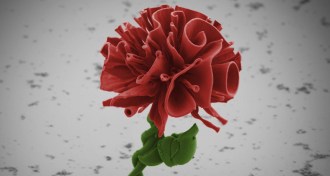 Chemistry
ChemistryMicrosculptures made easy
Minerals assemble on demand into tiny, complex shapes like tiny flowers.
-
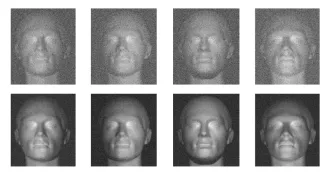 Materials Science
Materials Science3-D imaging, pixel by pixel
Easy technique uses inexpensive equipment to make three-dimensional rendering.
By Andrew Grant -
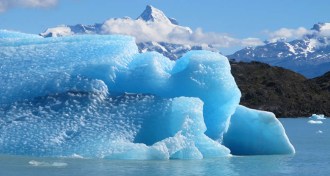 Oceans
OceansGlacier melt causes large fraction of sea level rise
From 2003 to 2009, thawing ice nearly as large a contributor to oceans as massive sheets at poles, researchers find in new analysis.
By Erin Wayman -
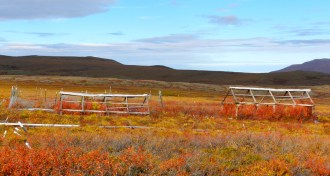 Climate
ClimateWarming may not release Arctic carbon
Element could stay locked in soil, 20-year study suggests.
By Erin Wayman -
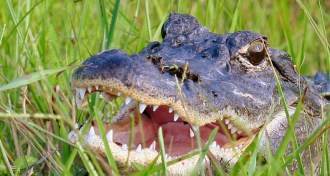 Animals
AnimalsThe secret behind the alligator’s toothy smile
Dental stem cells enable the reptile to grow new teeth every year, researchers find.
By Meghan Rosen -
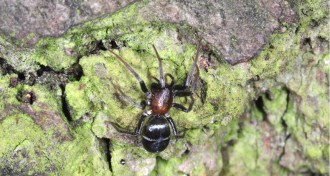 Animals
AnimalsCannibalistic spiders may just be choosy guys
Male Micaria sociabilis may choose to have older female for lunch, not sex.
By Susan Milius -
 Climate
ClimateCarbon dioxide in atmosphere reaches landmark level
At 400 parts per million, greenhouse gas concentration is now higher than it has been for millions of years.
By Erin Wayman -
 Earth
EarthJapan’s 2011 earthquake upped Tokyo’s risk
Chance more than doubled that capital city will soon experience big temblor, researchers calculate.
By Erin Wayman -
 Life
LifeGut bacteria adapt to life in bladder
E. coli moving between systems may cause urinary tract infections.
By Meghan Rosen -
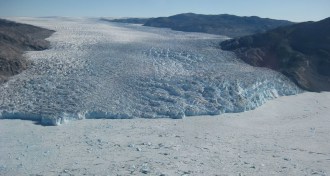 Climate
ClimateIce loss from Greenland’s glaciers may level off
Simulation suggests long-term effect on sea level not as dire as some predictions.
By Erin Wayman -
 Health & Medicine
Health & MedicineHighlights from the Pediatric Academic Societies meeting
Highlights from the pediatrics meeting held May 4-7 in Washington, D.C., include adolescent suicide risk and access to guns, a reason to let preemies get more umbilical cord blood and teens' cognitive dissonance on football concussions.
By Nathan Seppa -
